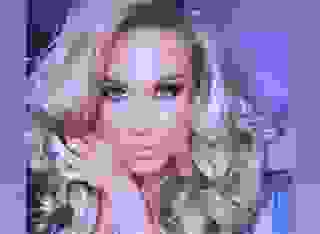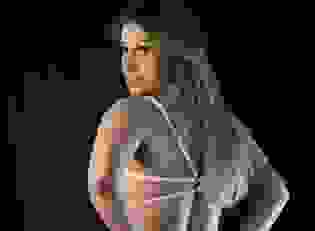Note: You can change font size, font face, and turn on dark mode by clicking the "A" icon tab in the Story Info Box.
You can temporarily switch back to a Classic Literotica® experience during our ongoing public Beta testing. Please consider leaving feedback on issues you experience or suggest improvements.
Click hereThen the head of the planetary council asked, "Well, what do we do?"
"Our only hope," Grape suggested before anyone else could project their thoughts, "is for someone to go alone to that planet in search of genetic material that might save our species and bring it back. That someone should be able arrive unobtrusively and then do their research in areas far from where the land-dwellers live."
He paused for a moment and then added, "I suggest we send one small space ship to explore this planet. It will allow the rest of you to mobilize most of our world's resources to carry on research here, which is the most likely place to the tRNA we need. I admit that the chances of success on this alien planetary are tiny. Something could wrong with the space pod before it even reaches this planet. The planet itself is definitely extremely dangerous and perhaps poisonous to us. And then we have to return home. Who knows what can happen in the deepness of space? The risk of death is high."
Some of the scientists argued that even this was waste of time and resources.
But Grape had a counter-argument. "We cannot leave any stone unturned, even if the stone is on an alien planet. Maybe, just maybe, we will find there what we have not found here so far. We have to at least try because our survival as a species depends on it. Success could be at home but it could also be on an alien planet. The resources needed to send one of us to that planet is relatively small compared to the resources we plan to devote to finding a solution here at home. We are dying out. We must do it."
"Who would take this near-impossible mission?" the head of the council questioned. "None of our spacecraft has ever travelled so far. Sending someone might be an effective death sentence. How long would it take to get there?" he then asked.
"It would take almost half a year to reach this planet at maximum warp speed," Grape answered. "It would take a month to reach maximum speed and a month to slow it down. It may take years to find the tRNA molecules we need and, I admit, we may never find what we need on this planet."
"Who would risk him/herself on a mission with almost impossible odds of success?" the head of the council asked his compatriots.
"I would," Grape announced. I have the knowledge and my ability to breathe air increases the scope of what I can do where I can go on this planet. Risking one life to save hundreds of millions of others seems to be worth the effort and the resources it would take to send me there," he concluded.
The members kept their thoughts in their own heads while they contemplated Grape's audacious proposal.
"Well?" said the head of the council. "I say let Grape go. It's only one space ship, a pod big enough to carry one person, plus research equipment and a portable processor that can transform any carbon-based life form into edible food. And we can still use most of our resources for ongoing research at home."
So, the council reached a compromise. Some resources would be expended on the construction for an interstellar space ship, or more precisely, a space pod on the outside chance that another planet with life on it might have tRNA they needed to restore a future to their own species. Those who were still convinced that they could find a solution at home would have the resources to continue.
A year later, Grape found himself about to go on a mission to save the people of his planet. Grape double-checked his instruments. He was both excited and fearful. On the ship, he would keep himself busy with his studies and his physical exercises. His ship was programmed to begin reducing its speed once it entered the targeted solar system.
As his space pod approached the planet, he would use the sophisticated technology on his ship to learn as much as he could about the planet, and its life forms, especially the dominant species, before actual touchdown.
Grape decided that he would land in an area which was both watery and largely uninhabited by this planet's dominant land-dwelling species. From there, he would begin his explorations in search of a species that might hold the key to the future of the people of his home planet.
The place where Grape chose to land his space pod was known to the dominant land-dwelling species as Papahānaumokuākea Marine National Monument.
Three years passed. Grape had found nothing useful although the discovery of a vast number of strange creatures that he came across and studied never gave him a chance to become bored.
4 The Cnidariologist
Nadine was a cnidariologist but she specialized in Ctenophora rather than Cndaria. She was envious of her colleagues who had worked with the National Oceanic and Atmospheric Administration (NOAA) Fisheries research team and who discovered several new deep-ocean species in the Puerto Rico Trench. Among the discoveries was a new species of ctenophore, or comb jelly, newly named Duobrachium sparksae.
In her capacity as scientist, she had been given permission to the explore the marine park for new species. She had hoped that vast largely untouched waters of the Papahānaumokuākea would reveal its secrets. The discovery a new species would certainly lift her status in the eyes of her colleagues and, if she were lucky, even might make her famous. Her studies and papers describing such a new species would enhance her chances to achieve a full professorship in the university.
Nadine was SCUBA-diving just off-shore where the depth was about five feet. Except for the SCUBA equipment, she was totally nude. She would alone and isolated for the next two weeks. There wouldn't be another person within 100 miles of her. If something happened to her, no one would ever know.
She left her cellphone and tablet behind. What was the point? There was no wi-fi and no reception. Although she brought a couple of paperbacks with her, she did not anticipate reading very much because she would spend as much time in the water as she could and the rest of time either enjoying the sun or exploring the island. She would sleep in the during the night and when she couldn't, she would imagine her dream man and diddle herself.
She was preparing herself to plunge down the edge of an underwater cliff, the face of which she intended to explore in the hope of finding a new species.
Unfortunately for Nadine, after several dives, she found nothing new although on this dive she thought she see something ghost-like flash by from the corner of her eye. But when she looked full-on, she saw nothing. 'Probably a fish,' she had thought.
When she saw that her oxygen tank would soon be depleted, she knew it was time to end to her exploration. Disappointed, she swam up the face of the cliff and then over the shelf. When she put her flippered feet down on the coral-strewn bottom, she estimated that the water was well over one meter deep (four feet). It was her intention to walking the rest of the way to shore.
As she was taking off her mask, she looked down the shoreline and saw a huge shark fin break the surface and head straight toward her. Although she was not an expert in fish, she knew enough about the denizens of the deep that great white shark was rushing toward her. Great whites rarely swam in such shallow waters. So, she was confused that such a shark would even be here. She thought it would turn and head to the open sea.
But the shark was still making a beeline toward her. She felt the fear rise in her as she began to realize that she was its prey. She tried to run to shore but the resistance of the water made her effort at speed look like slow motion. Certain that the shark intended to her its next meal, Nadine panicked and became desperate. The water would not cooperate with her legs.
The shark seemed to pick up speed as it honed on the nearly helpless prey. Then at about 20 feet, the shark stopped, abruptly, like it had hit a wall, except that there was no wall.
The panicked young scientist plodded slowly toward shore. As she began to calm down, she looked back and saw the strangest sight. In fact, she thought her eyes were playing tricks on her, maybe an effect of the sunlight reflecting off the surface of the ocean water or maybe she was hallucinating because of the fear and the adrenaline coursing through her body.
She thought she saw a giant comb jelly. She rubbed her eyes to clear them. It was still there. As she moved closer to the shoreline, she noticed that it stayed between her and the hungry shark.
'This cannot be,' she thought. 'It looks like a comb jelly, and yet it's different too.'
Nadine drew on her knowledge of comb jellies. Scientifically known as ctenophores, and depending on the species, the hundred or so species of known comb jellies ranged in size from a few millimeters to 1.5 meters (about five feet). They were carnivorous invertebrates which had some superficial similarities with jellyfish. While jellyfish propelled themselves by pushing their bodies against the water, ctenophores were equipped with 'comb rows' which they moved synchronously, much like the sculls used in Olympic rowing competitions.
Nadine recalled that some species, not all, had two tentacles while others have hardened cilia (hair-like structures) in the mouth that they can use to bite their prey. It looked somewhat like a beak.
Unlike jellyfish, comb jellies have no stinging cells. Instead, they had sticky cells called colloblasts which they use to capture their prey.
Nadine closed her eyes and rubbed them again. When she opened her eyes, the shark was gone, but the creature that had saved her was still there. It had also moved closer to her. She felt her fear rising inside her again but she managed to hold her fear back long enough to give the creature a cursory visual examination. At the same time, she slowly walked backward toward shoreline keeping her eyes on the strange creature.
But the creature had stopped, making no apparent aggressive movement toward her. Nadine when into analytical mode and began to make her observations.
'It certainly looks like a jelly comb,' she thought, 'but by comb jelly standards, this creature is a veritable giant. It's about twice as long as I am high. It's definitely larger than any ctenophore known to science. 'Hmm,' she hummed in her mind, 'interesting, it also has four tentacles around its head. Many comb jellies have no tentacles and some have two but this one has four. It must be a whole new genus. This discovery would make my career,' she concluded.
The creature approached her again, which reminded her that she was still vulnerable. Something in her mind told her that she was not its prey, at least not at that moment. Nevertheless, she decided that she had better get back on shore just in case.
This creature stopped following her. One of its tentacles broke the surface of the water and seemed to wave at her.
'Stop anthropomorphizing the creature's movements,' she chided herself.
On shore, Nadine removed her SCUBA gear and sat down facing the ocean. She had found a creature that could make her famous, the discovery of a new species and the world's largest comb jelly.
Later, that evening in her encampment on the island, Nadine couldn't help but be bothered by a thought in the back of her mind that she was missing something. The creature had acted in a deliberate to place itself between the shark and her. It had saved her life! Also, if had it wanted to take her, it could have done so easily as she had been under water for almost an hour. But that also meant that the creature was intelligent! Impossible! But that didn't mean it was benevolent!
That night she dreamed about the creature in startling clear and yet surreal images. They were images of an alien world, a world of science-fiction.
Nadine woke up suddenly. She was sweating and shaking because the dream was still so real and yet also so surreal. Usually, a dream would quickly fade away and, sometimes, they would seem real and impress themselves on her memory. But this dream was nothing like any other dream she had ever had. This dream was so vivid.
Normally, Nadine would take a shower get dressed and make breakfast. She lived alone. Although she had the occasional boyfriend, the relationship wouldn't last long because of her devotion to her education, her studies and her budding professional career. She was alone. Her parents were killed in car crash about two years ago. She had no siblings. Her life circumstances and the bent of her personality made her a loner.
Encamped on an isolated Hawaiian beach, she had none of the usual amenities, just basic camping gear and rations. She used her snorkel to hunt for food and had picked an island which could supply her with coconuts and fruits from inland trees. Her encampment was on the edge of a stand of tropical fruit trees.
She slipped out of her sleeping bag and draped it over a fallen tree truck to air it out. Then she plucked some fruit from the nearby trees and split a coconut. Although she had rations, she preferred to use them as a last resort.
Her main source of protein was fish. In addition to her hope of finding new species, she had also chosen this location because its bountiful fish. It was enough for her needs to spear for fish in the shallow waters close to shore.
Her intended routine was to fish first, gut it and then fry it with the pan that came with her kit, and then eat it later at lunchtime. This time, however, she felt some trepidation, partly for fear that the huge shark would come back, but also worried that the strange apparition that had stopped it might decide to give her some unwanted attention or even turning her into its next.
She looked toward the ocean, wondering. What was she to do? On the one hand, she had to fish for food and explore for a new species. On the other hand, there was at least one, and maybe two predators taking an interest in her. Maybe, the giant comb jelly left her alone because it had already fed. The next time, she might not be so lucky.
"Think,' she told herself. 'Use your critical capacity.'
So, she thought. She remembered that her grandparents loved on old TV show called 'Dragnet' where the lead character, Sgt. Joe Friday, played by Jack Webber, would cut through the babble by saying 'Just the facts, ma'am,' whenever he interviewed a potential witness.
Then she remembered another fictional detective, Sherlock Holmes, a role many actors had played over the years. His most famous saying was, 'When you have eliminated the impossible, whatever remains, however improbable, must be the truth'.
'It's possible,' she thought, 'that I suffered a very realistic hallucination. I need facts to prove or disprove the hypothesis that what I saw and experienced as an elaborate delusion.' She knew that some people with serious mental problems had trouble distinguishing the real from the unreal. 'But I have no history of mental illness,' she reminded herself, 'and I haven't eaten anything that could cause hallucinations.'
She recalled the previous day's events. She remembered that neither the shark nor the supposed giant comb jelly followed her once she was in shallow water. Both creatures would have had the painful experience of scraping their bellies across the sharp edges of strewn broken coral that littered the beach and the shallow water. She would be safe, she concluded, as long as she avoided deeper water.
She decided to venture out until she was in three feet of water. If a large shark was present, she would see its back fin and would be able to retreat safety back to shore. If the other creature was not a hallucination, she would be able to see it from her vantage and retreat from it as well. Of course, she reminded herself, she might not see the creature either because it really was a hallucination caused, perhaps, by a minor case of the bends brought on by her dive, or if it was real, it could have just moved on, never to be seen again.
Feeling that she would be safe in water reaching her mid-thigh, Nadine took her spear gun and ventured into the ocean. And then she saw it. It had moved noticeably closer to shore relative to the position it had held before.
She stopped, ready to rush back to shore. She saw the creature was making no further movement. She stood still as if she thought that this would somehow conceal her from its senses.
From a distance, she examined the creature intently. It was slowly rotating on its lateral axis. While it rolled over, it slowly displayed its entire body to her view. After about 15 minutes, the creature had completed its slow roll. The body, she could see, was translucent enough to reveal the creature's larger organs. She could tell which of them might be the thing's brain, but she thought that the brain was probably on the front-end of the creature were the tentacles were located. But she could not be certain because, it was the one region of the creature's body that was clearly opaque.
A tentacle broke the surface and waved at her just like it had the other day. She had this irrational thought that the creature was reminding her that it had protected her from the shark.
Then the creature's tentacle extended toward her. When she saw its length, she suddenly realized that they were more than long enough to capture her easily. She almost panicked with the thought. Then the creature disappeared from her view.
Nadine was uncertain whether it was safe for her to explore the underwater cliff face again, knowing that both a shark and a giant comb jelly were haunting the depths. What she saw in broad daylight was too real and too vivid to be a product of an hallucination.
She returned to shore, sat on the sand and contemplated the situation. 'Assuming this creature is real, then there was only one explanation for its behaviour. It seems to make rational choices. Therefore, this was the part that was so difficult to accept or believe, it is sentient! How is that even possible?' she asked herself.'
Everything she had ever thought or known before had established, without a shadow of a doubt, that homo sapiens, humans, was the only sentient species on planet Earth. So, there were only two possible hypotheses: either she was still hallucinating, which she was convinced was not the case, or there was an alien intelligence just off-shore that had rescued her and was now taking an inordinate interest in her.
'How could such a large intelligent creature exist on our world without ever being discovered? It must have come from somewhere else. It must be extraterrestrial. It's an alien!'
There appeared only one thing left for her to do. She would approach the creature and make first contact. 'Maybe, I really am crazy,' she thought.
She decided to take the rest of the day off, just lounge in the sun and see where her thoughts would take her. Maybe something would pop in her head that she hadn't thought about. She began to suffer a bad case of scientific curiosity. Making contact with this alien would make her famous in a much different way than she had originally hoped and anticipated. She would go down in the annals of science as not only a discoverer of a new species but of an intelligent species from space. Intellectual curiosity and her yearning for scientific fame competed with her natural fear and caution.
5 First Contact
The following morning, Nadine took a spear gun in hand and waded into the water. Sure enough, the creature was in exactly the same place as it was yesterday. She saw a tentacle extend toward her. In panic, she pointed the spear gun toward the creature. It quickly withdrew into deeper water bit was still looking at her.
Grape reacted in fear to her aggressive motion, but when he backed off, she made no effort to follow him. He looked at her. To human eyes, Nadine was a curvy, yet lithe, brown-eyed brunette who sported perfectly shaped firm breasts, an enticing ass and long strong legs. In short, for many men should be regarded as eye candy, especially considering that she was also totally nude.








